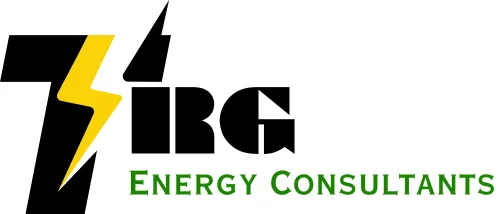NATURAL GAS PROCUREMENT
NATURAL GAS PROCUREMENT
Natural Gas Procurement
Natural gas procurement refers to the process of acquiring or purchasing natural gas for various purposes, such as industrial, commercial, or residential use. It involves sourcing natural gas from suppliers, negotiating contracts, and managing the logistics of transportation and delivery.
The procurement of natural gas typically begins with identifying potential suppliers. These suppliers can include natural gas producers, wholesalers, marketers, or utility companies. The procurement process may involve soliciting bids or proposals from different suppliers to compare pricing, terms, and conditions.
Overview of TRG Energy Natural Gas Procurement Strategy
TRG Energy offers solutions aimed at assisting businesses in overcoming the difficulties associated with natural gas procurement. Making incorrect choices in procurement can result in substantial financial implications. From their expertise, it is crucial for businesses seeking to reduce natural gas supply expenses to obtain accurate responses to the following three essential inquiries.
How to buy natural gas?
When it comes to buying natural gas, there are a few different options available. The most common methods include:
a) Buying directly from a supplier: This involves entering into a contract with a specific natural gas supplier. The terms of the contract, such as the pricing structure and duration, can vary depending on the agreement reached.
b) Utilizing a broker or aggregator: Some businesses choose to work with brokers or aggregators who specialize in natural gas procurement. These intermediaries help businesses navigate the market and negotiate favorable contracts with suppliers on their behalf.
c) Participating in a natural gas exchange: Similar to a stock exchange, a natural gas exchange allows businesses to buy and sell natural gas contracts. This option provides flexibility and the ability to react to market conditions in real time.
The choice of how to buy natural gas ultimately depends on factors such as the size of the business, its specific needs, and the expertise available within the organization.
From which supplier to buy?
Selecting the right natural gas supplier is crucial for businesses seeking to optimize their procurement strategy. Factors to consider when choosing a supplier include:
a) Price competitiveness: It is important to compare pricing structures and rates offered by different suppliers. However, it's equally important to consider the long-term stability of the pricing and the potential for future cost fluctuations.
b) Reliability and reputation: Evaluate the reliability and reputation of the supplier. Look into their track record of service quality, delivery reliability, and customer satisfaction. This information can often be found through industry reviews, references, and online resources.
c) Contract terms and flexibility: Assess the terms and conditions of the supplier's contracts. Consider factors such as contract duration, penalties for early termination, and the ability to adjust contract terms if business needs change.
d) Additional services and support: Some suppliers may offer additional services or support, such as energy management tools, demand response programs, or renewable energy options. Assess whether these additional offerings align with your business's goals and sustainability initiatives.
When to buy?
Timing plays a significant role in natural gas procurement. The natural gas market is influenced by various factors, including supply and demand dynamics, weather patterns, geopolitical events, and market speculation. It is essential to stay informed about market conditions and closely monitor price trends.
Businesses can consider the following strategies for determining when to buy:
a) Fixed pricing: Locking in a fixed price for a predetermined period can provide stability and protection against price fluctuations. This strategy is suitable for businesses seeking price certainty and budget stability.
b) Market index pricing: Aligning the gas price to a specific index, such as the NYMEX (New York Mercantile Exchange), allows for more flexibility and potential cost savings if market prices decrease. However, it also exposes businesses to price volatility and the possibility of increased costs if market prices rise.
c) Price hedging: Implementing a hedging strategy involves purchasing financial instruments, such as futures contracts or options, to mitigate the risks associated with price fluctuations. This strategy requires a thorough understanding of the financial markets and may be more suitable for larger businesses with access to risk management expertise.
In conclusion, businesses seeking to reduce natural gas supply expenses should carefully consider how to buy natural gas, which supplier to choose, and when to make procurement decisions. TRG Energy can provide expertise and guidance in these areas to help businesses make informed choices and optimize their natural gas procurement strategies.
